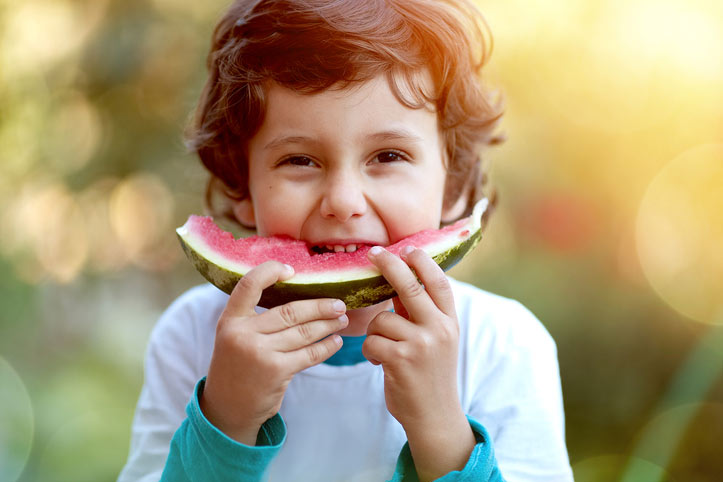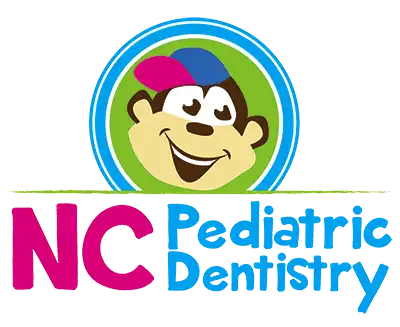Diet and Nutrition Tips
 Diet and nutrition can have enormous effects on your child's oral health. Without the right vitamins and minerals, they may be at risk for development issues, tooth decay, and even gum disease. We here at NC Pediatric Dentistry can provide you and your child with the education needed to avoid these potential problems. Diet and nutrition can have enormous effects on your child's oral health. Without the right vitamins and minerals, they may be at risk for development issues, tooth decay, and even gum disease. We here at NC Pediatric Dentistry can provide you and your child with the education needed to avoid these potential problems.
We believe that patient education is the foundation of pristine oral health! The right information can ensure your child maintains a healthy and beautiful smile for many years. The following diet and nutrition tips will establish habits that protect your child's teeth well into adulthood.
Limit Sugars, Starches, and Other Simple Carbohydrates
Tooth decay is caused by the harmful bacteria found in plaque, a thin biofilm that constantly forms around teeth. This bacteria feeds off of sugars, starches, and other simple carbohydrates. As they feed, they produce acids that attack the enamel, eventually causing tooth decay and cavities.
By limiting the consumption of sugars, starches, and other simple carbs, you essentially starve the bacteria. This minimalizes the amount of acid they produce and keeps your child's teeth healthy and strong. Unfortunately, this is easier said than done.
Sugar is ubiquitous in the food industry. We recommend checking the nutritional labels of products you plan to purchase. Sugar can even be hidden in food items you may not suspect, like salad dressings and pasta sauces.
Boost Fruits and Vegetables
One way to improve diet and nutrition is with fruits and vegetables. Instead of snacks like chips, candies, and processed baked goods reach for pears, celery, and carrot sticks. Fruits and vegetables that contain high water volume are ideal.
Not all fruits are good for your child's oral health, however. Try to limit fruits high in sugar like bananas and raisins. You may also want to avoid sticky, chewy foods as they can cling to the enamel, making it difficult for saliva to rinse off the sugar.
Fewer Snacks
Frequent snacking may also increase your child's risk of tooth decay. During the time between meals, saliva is meant to wash away food particles. If your child is continuously snacking, the bacteria have more opportunities to feed, leading to further plaque development and tooth decay.
If your child must snack, try to avoid sugary treats. Be sure to offer healthier options and encourage them brush their teeth more often. Candies and starchy starch snacks should be reserved for special occasions, instead of everyday desserts.
Calcium Is Your Friend
Most parents know that calcium is good for teeth, but they may not know why. Every day, our teeth lose and gain minerals through the processes of demineralization and remineralization. If demineralization occurs at a faster rate than remineralization, tooth decay will occur. Calcium consumption can supplement the process of remineralization, keeping the enamel strong.
Low-fat dairy products like milk, cheese, and yogurt are excellent sources of calcium. However, they aren't the only way to consume the mineral. Leafy greens and broccoli can also boost your child's calcium levels. These vegetables are a great alternative for dairy-free kids.
FAQs
How does sugar affect my child’s teeth?
Sugar feeds the harmful bacteria in plaque, which produces acids that attack tooth enamel. Over time, this process can lead to tooth decay and cavities. Limiting sugary foods and beverages can help protect your child’s teeth and reduce the risk of decay.
What are some tooth-friendly snacks for kids?
Tooth-friendly snacks include fruits and vegetables with high water content, such as apples, pears, celery, and carrots. These options are not only nutritious but also help clean teeth by stimulating saliva production. Avoid sticky or sugary snacks like candies and raisins that can cling to teeth and promote decay.
Why is calcium important for my child’s teeth?
Calcium strengthens tooth enamel by aiding the process of remineralization, which repairs enamel after it is exposed to acids. Foods rich in calcium, such as low-fat dairy products, leafy greens, and broccoli, are excellent for maintaining strong and healthy teeth.
How can I reduce my child’s risk of tooth decay from frequent snacking?
To reduce the risk of tooth decay, limit frequent snacking and encourage healthier snack options like fruits and vegetables. Teach your child to brush their teeth after snacks or rinse their mouth with water to help remove food particles and bacteria.
Are all fruits good for my child’s teeth?
While fruits are generally a healthy snack, some, like bananas and raisins, are high in sugar and can contribute to tooth decay if not consumed in moderation. Fruits with high water content, such as apples and pears, are better options for oral health as they help rinse away sugars naturally.
Schedule an Appointment
If you would like to learn more about your child's oral health schedule an appointment today! |

 Diet and nutrition can have enormous effects on your child's oral health. Without the right vitamins and minerals, they may be at risk for development issues, tooth decay, and even gum disease. We here at NC Pediatric Dentistry can provide you and your child with the education needed to avoid these potential problems.
Diet and nutrition can have enormous effects on your child's oral health. Without the right vitamins and minerals, they may be at risk for development issues, tooth decay, and even gum disease. We here at NC Pediatric Dentistry can provide you and your child with the education needed to avoid these potential problems. 